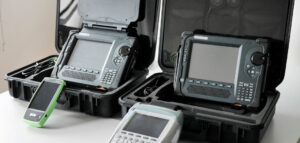Business Travel Risk Management : Navigating Security for Corporate Travelers

In the contemporary corporate landscape, global connectivity and expansion have magnified the necessity for business travel. However, with these opportunities come inherent risks, demanding meticulous planning and foresight. A business travel risk management is the cornerstone of ensuring the safety, security, and well-being of corporate travelers. This article delves deep into strategies, insights, and tools essential for a seamless and secure journey.
- Understanding Business Travel Risk Management
- Assessing Risks : Proactive Measures
- Travel Policies : A Shield of Protection
- Technological Advancements : Enabling Safety
- Crisis Management : Navigating Adversities
- Collaborative Partnerships : Strengthening Support Networks
- Continuous Evaluation and Adaptation : The Key to Resilience
- FAQs
- How can companies assess the risks associated with specific destinations?
- What role do travel insurance policies play in business travel risk management?
- Is it essential for businesses to conduct pre-travel briefings for employees?
- How can technological advancements aid in real-time risk mitigation during travel?
- What constitutes an effective crisis management plan for business travel?
- Why is continuous evaluation crucial in business travel risk management?
- Conclusion
Understanding Business Travel Risk Management
Embarking on business ventures often entails navigating through a myriad of uncertainties. Business travel risk management encapsulates the proactive identification, evaluation, and mitigation of potential threats and risks encountered during corporate travel. It aims not only to ensure the safety of individuals but also to safeguard organizational assets and interests.
Assessing Risks : Proactive Measures
Before setting foot on a journey, meticulous risk assessment forms the crux of efficient risk management. Conducting thorough analyses of geopolitical situations, health advisories, and local security conditions equips businesses to make informed decisions. Leveraging technology-enabled risk assessment tools and expert consultations streamlines this process, enhancing preparedness against potential threats.

Travel Policies : A Shield of Protection
Establishing robust travel policies lays the foundation for effective risk mitigation. Clear guidelines on permissible destinations, accommodation standards, transportation modes, and emergency procedures empower employees with actionable directives. Aligning these policies with industry best practices and evolving global scenarios ensures adaptability and relevance.
Technological Advancements : Enabling Safety
In today’s digital age, technological innovations serve as invaluable assets in mitigating travel risks. Integration of GPS tracking, real-time communication applications, and emergency response systems enhances monitoring capabilities, facilitating swift response mechanisms in crisis situations. Embracing these advancements bolsters overall travel safety.
Crisis Management : Navigating Adversities
Despite meticulous planning, unforeseen circumstances may arise. Implementing comprehensive crisis management strategies is pivotal. Well-defined contingency plans, rapid communication protocols, and designated crisis response teams fortify resilience, ensuring swift and effective action during emergencies.
Collaborative Partnerships : Strengthening Support Networks
Forge strategic alliances with trusted partners and local resources to fortify travel risk management efforts. Collaborating with global assistance providers, local authorities, and security agencies fosters a network of support, offering invaluable insights and on-ground assistance when needed.
Continuous Evaluation and Adaptation : The Key to Resilience
The dynamics of risk are ever-evolving. Regular evaluation of policies, risk profiles, and emerging threats is indispensable. Agile adaptation and refinement of strategies based on past experiences and evolving scenarios fortify the resilience of business travel risk management frameworks.
FAQs
How can companies assess the risks associated with specific destinations?
Robust risk assessment involves analyzing political stability, health advisories, crime rates, and local security measures. Leveraging expert consultations and credible intelligence sources aids in comprehensive evaluations.
What role do travel insurance policies play in business travel risk management?
Travel insurance offers financial protection against unforeseen circumstances such as trip cancellations, medical emergencies, and lost belongings, complementing risk management efforts.
Is it essential for businesses to conduct pre-travel briefings for employees?
Absolutely. Pre-travel briefings ensure that employees are well-informed about potential risks, safety protocols, and emergency procedures, empowering them to make informed decisions during their journeys.
How can technological advancements aid in real-time risk mitigation during travel?
Technology-enabled solutions like GPS tracking, emergency response apps, and communication tools offer real-time monitoring and swift response capabilities, enhancing overall travel safety.
What constitutes an effective crisis management plan for business travel?
A comprehensive crisis management plan includes predefined protocols, communication strategies, designated response teams, and simulated drills to prepare for and efficiently manage emergencies.
Why is continuous evaluation crucial in business travel risk management?
Continuous evaluation ensures that strategies remain aligned with evolving risks, enabling proactive adjustments and ensuring the resilience of risk management frameworks.
Conclusion
Navigating the realm of business travel demands a holistic approach to risk management, blending proactive measures, technological advancements, and adaptive strategies. Embracing a comprehensive business travel risk management framework not only ensures the safety of corporate travelers but also fortifies the resilience of organizations in an increasingly interconnected world.







